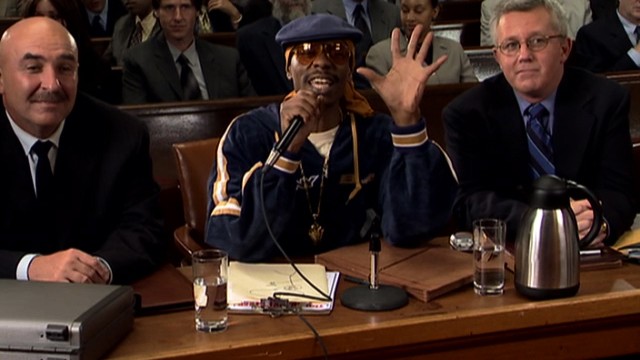
While visiting an orphanage in India several years ago, my host asked if I wanted to preach to a group of pastors and widows. I told him “No.”
It’s one thing to give my testimony at a youth event, like I did in Indonesia a couple months earlier. It’s something entirely different to prepare and give a sermon to a roomful of adults at a church.
An Uncomfortable Faith
Growing up, I never felt comfortable being a Christian. Perhaps it was because I lived in Oregon, where most people aren’t believers. Automatically that made me different. I learned that lesson on my first day of kindergarten. Everyone sat in a circle and, one by one, shared what their dad did for a living. When my turn came, I proudly declared, “My dad’s a pastor.”
The room went silent.
After that, I never again wanted to talk about religion in public. I didn’t want to mention my dad’s job or that I went to church every Sunday. It made me uncomfortable because I sensed other people felt uncomfortable.
As I grew older, though, I began feeling guilty about my silence. Christians are supposed to speak up and defend truth, evangelize and share the gospel, push against immorality and sin—at least that’s what I thought. That guilt motivated me to begin speaking more about my faith. But I still didn’t enjoy it.
Fighting for My Faith
Then one summer in high school, I attended a two-week conference in the mountains of Colorado. For ten hours a day, we listened to lecture after lecture about topics relating to our faith. We learned about the Bible, apologetics, comparative religions, cultural issues, politics, and science. Not necessarily for the purpose of strengthening our faith, but to equip ourselves to debate.
One afternoon, we went to a park and argued about abstract topics like the morality of vehicular speeding. Another afternoon, we picketed against a business we weren’t supposed to like. One morning, we went into town and tried to convert unsuspecting folks at a laundromat.
On my way home from Colorado, I determined to ignore my feelings of discomfort and put my newfound evangelism into action. It didn’t take long. As the plane landed in Portland, I launched into a heated debate with an atheist sitting behind me. The following month when school started, fear no longer held me back. The discomfort and awkwardness I previously felt wilted beside my faith-filled fire.
In no time I developed a reputation as someone who loved arguing about religion and politics. Whether debating friends or classmates or even teachers, I never backed down from a fight. I knew the truth and it was my job to proclaim it.
Deep down, though, I hated every minute of it. I hated arguing. I hated disagreement. I hated offending people. I hated creating waves. I hated the gathering discomfort around me. And paradoxically, the more I argued the less secure I felt about my faith. It seemed as though encountering someone with opinions even slightly different than my own surfaced the possibility I might be wrong. It was as if the existence of divergence cast a shadow upon my own views. Over time, I suspect I elevated rightness above truth.
Slouching Toward Apathy
Eventually, the conflict wore me out. Halfway through my sophomore year of college, I found myself verging on apathy. Although I still valued my faith, I didn’t want to talk about it. I just wanted to live without conflict. In a sense, I reverted to the same passive tendencies I had as a child. I started avoiding debates. I began sidestepping deep conversations. I no longer shared my opinions eagerly. During philosophical discussions with friends or classmates, I opted to observe rather than participate. Not completely, just more often.
Years later, during a cross-country move from Washington, DC to Oregon, I stayed overnight with a friend in California named Jono. We’d been roommates in DC for a while and knew each other well. I enjoyed hanging out with him because he was so different than me—fiery and spontaneous. That night, we went to an outdoor shopping area in Santa Monica to eat dinner and walk around. At one point, Jono spotted some Orthodox Jews and approached them. He wasn’t confrontational or anything; he simply had a question and asked it.
Over the next ten minutes, Jono shared a deeper and more enlightening spiritual conversation with people he had never met than I had shared with anyone in years. It was humbling. And it helped me realize how far astray I had wandered. Not because I had never randomly approached a group of Orthodox Jews. But because I had disengaged from my deeply-held beliefs. I had essentially hidden what little light I carried under a cardboard box.
Reconciling Faith with My Personality
That experience reinforced something I had begun realizing about myself. I’m not a fighter. That might seem trivial, but I struggled against it for much of my life. For years I tried to force myself to act a certain way and it just didn’t fit. I thought to be a Christian meant to be confrontational and argumentative. But that wasn’t me.
At my core, I crave peace. Where there’s division, I want reconciliation. Where there’s unrest, I seek stability. Where there’s disagreement, I look for common ground. Where there’s offense, I strive for forgiveness. That’s who I am. There’s no sense fighting it. In all things, I wanted to strive for respect and understanding. Those are the values I wanted to embody. That’s how I felt comfortable expressing my faith.
Pushing Back Against the Lingering Indifference
Here’s the thing, though. Timidity and indifference still pulled on me. Sometimes I avoided expressing myself when I wanted to say something. Sometimes I didn’t raise my voice when it would have been appropriate. Sometimes I remained silent when I needed to speak.
That’s what happened when I told my host in India I wouldn’t preach. I gave in to my deepest fears—the voice telling me it’s easier, and therefore better, to remain silent than to speak truth.
By the next morning, though, I changed my mind and told my host I would do it. Fear wouldn’t stop me. Not this time. For years it held me back and kept me from being myself. But not anymore. I had to put into practice what I had long suspected: Fear is never a good excuse for inaction. It’s always a distraction, always a diversion.
This is an excerpt from Unexpected Journeys: My Search for Adventure, Love, and Redemption on the Other Side of the World. Order a copy on Amazon.






















